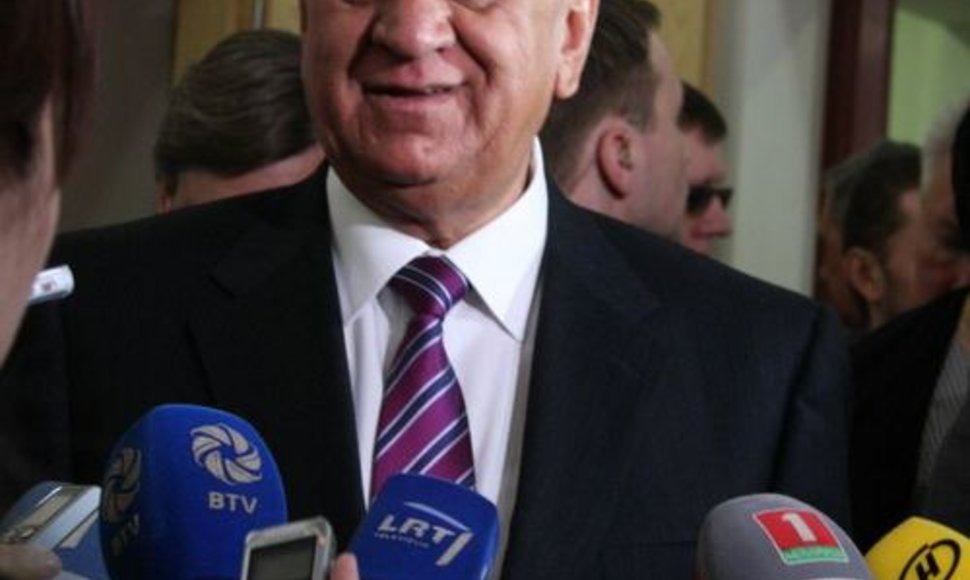Although opponents of Belarusian authoritarian President Alexander Lukashenko are highly critical of EU's contacts with the Belarusian administration, they acknowledge that the prime minister does not enjoy great influence in the regime.
"He is a person whose opinion or words have no effect on what happens in the country. Everything is decided by the Lukashenko administration," Vlad Kobets, former chief of the election bureau of opposition candidate Andrey Sanikov. Kobets also heads the opposition news portal Charter 97.
"If they want to see someone from Belarusian officials, Myasnikovich is probably the way out of the situation," the activist said in Vilnius.
Nevertheless, Kobets noted that the Belarusian regime had lately failed to take any steps to persuade the EU into resuming dialogue.
"Without steps on the side of the regime, without release and rehabilitation of political prisoners, there is no sense in talking to these people. What is there to talk about?," said the opposition figure.
Yevgeny Preiherman of a Minsk-based thinktank told BNS that the Belarusian prime minister was the best compromise for representing the country's administration.
"The EU wants the meeting to be successful. Of course, Ukraine will be in focus, if they manage to sign the Association Agreement, however, nobody wants any scandals with Belarus, as the case was in Warsaw two years ago. Furthermore, Lithuania wants certain stability in economic cooperation with Belarus. Therefore, Myasnikovich is an optimal figure," Preiherman said.
Asked about the Belarusian opposition's opinion about such invitation, he replied that the Belarusian opposition always "has problems with any contacts between the EU and high-ranking Belarusian politicians."
"Consequently, they will not be happy in either case, they will want some type of a similar status at the summit. However, there is nothing unusual about this," he said.
Olga Zakharova of the Committee on International Control over the Situation with Human Rights in Belarus told BNS that, in case of a decision to invite Myasnikovich, Belarusian opposition representatives should also be invited to Vilnius on a similar level.
"If there is a need to talk to somebody, Myasnikovich may be a good compromise here, as Belarus has not been expelled from Eastern Partnership. However, if Myasnikovich is invited, invitations should also be sent to representatives of the Belarusian opposition accordingly. This should not be a less radical part that speaks in support of the dialogue, there should be an entire specter of the opposition and, which is also very important, representatives of the civil society. I think that would be a compromise," she added.
"This should be parallel on the EU level, as, in the opposite case, it would again be a game by Lukashenko's rules," Zakharova said.
Lithuania's Prime Minister Algirdas Butkevičius said last week Myasnikovich could be invited to the November 28-29 EU Eastern Partnership summit in Vilnius.
Some representatives of non-governmental organizations have suggested that member of the Belarusian administration should not be invited to the Vilnius summit. During a visit in Lithuania in January, Freedom House chief David Kramer said it would be be better if Belarus was represented not by officials of Lukashenko's regime but by civil society activists and human rights advocates.
Unlike the Belarusian president and foreign minister, the PM is not on the EU's black list of people who are banned to enter the EU due to repressions against the opposition.
Lukashenko, the Belarusian leader since 1994, took rigid measures against the opposition in response to protests that started in the wake of the 2010 presidential election.












